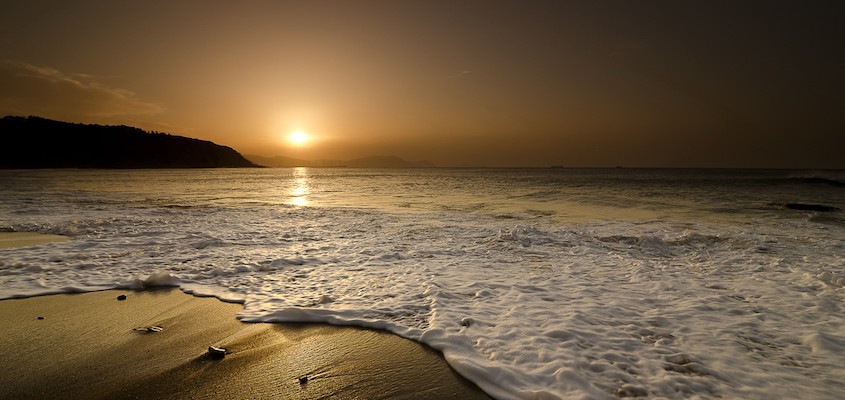Is Costa Rica a Safe Place to Live?
A Safe and Welcoming Destination
Costa Rica consistently ranks as one of the safest countries in Latin America. Its long-standing democracy, strong institutions, and lack of a standing army contribute to a relatively stable social and political environment. Many residents—both locals and expats—describe life here as "tranquilo" (pronounced "tran-key-low"), or peaceful, and it's one of the key reasons why Costa Rica remains a popular destination for retirees, remote workers, and families alike.
The country’s commitment to human rights and environmental preservation also reflects a broader cultural value: an emphasis on well-being, both individual and collective. While no place is entirely free from crime, Costa Rica offers a quality of life and sense of security that compares favorably with many parts of the world.
Understanding Crime in Costa Rica: A Balanced View
Costa Rica does experience crime, but much of it is opportunistic rather than violent. Petty theft, such as pickpocketing and bag snatching, is the most commonly reported issue—especially in areas frequented by tourists. Violent crime is relatively rare for most residents and expats, particularly in the quieter coastal and rural communities.
The country has seen occasional spikes in crime related to drug trafficking and organized crime, but these tend to be concentrated in specific urban or port areas, rather than in the expat-favored provinces. Context matters: comparing crime statistics without considering regional variations can paint a misleading picture.
Where Crime Is More Common
San José, Limón, and Jacó: Hours Away from Guanacaste
Higher crime rates are typically found in San José, Costa Rica’s capital, and in the Caribbean port city of Limón. These areas can experience gang activity and drug-related crime, particularly in certain neighborhoods. Jacó, a well-known beach town on the Central Pacific coast, has also seen some issues related to nightlife and theft, though it remains a popular tourist hub.
Importantly, these higher-crime areas are hours away from Guanacaste, which has become a preferred region for expats and investors due to its lower crime rates and more laid-back atmosphere. Geography plays a crucial role in security, and the northern Pacific zone tends to be more stable and community-oriented.
Why Guanacaste—and Especially Papagayo—Stands Out
Safe, Peaceful, and Popular with Expats
Guanacaste is widely regarded as one of the safest provinces in Costa Rica. Its smaller towns, close-knit communities, and slower pace of life contribute to a low incidence of serious crime. For those seeking a peaceful environment with modern amenities, it offers a compelling balance.
The Papagayo Peninsula, in particular, has become synonymous with high-end development, luxury living, and exceptional safety. Gated communities, private security, and conscientious urban planning all play a role. It’s no coincidence that many international families and retirees are choosing to settle here. While no place is immune to crime, Papagayo provides one of the most secure lifestyles available in Costa Rica.
Types of Crime You May Encounter (and How to Prevent Them)
The most common crimes in Costa Rica are non-violent and usually involve property. These include vehicle break-ins, minor thefts, and scams targeting tourists. Fortunately, such incidents can often be avoided through simple precautions, such as locking valuables away, not leaving bags unattended, and using reputable service providers.
Violent crime—such as assault or home invasion—is rare in well-established expat communities, but when it does occur, it's typically a crime of opportunity. Preventative measures like alarm systems, neighborhood watch programs, and choosing safe neighborhoods can significantly reduce risk.
Common-Sense Safety Tips for Day-to-Day Living
Living safely in Costa Rica, as anywhere, involves a blend of awareness and prudence. Keep personal items secured, especially in public or unfamiliar places. When driving, lock your vehicle and avoid leaving items visible. At home, good lighting, solid locks, and a friendly relationship with neighbors go a long way.
When exploring new areas, especially in larger towns or cities, it’s wise to travel during daylight hours and stay informed about local advisories. Most importantly, trust your instincts. Costa Rica is generally very welcoming, but a cautious mindset is still your best tool.
Law Enforcement and Ongoing Security Improvements
How the OIJ and Fuerza Pública Help Keep Communities Safe
Costa Rica's law enforcement structure includes both the Fuerza Pública (the local police), which handles general policing duties, and the OIJ (Judicial Investigation Agency - similar to the FBI in the United States), which deals with more serious criminal investigations. Together, they offer comprehensive coverage across the country.
In recent years, Costa Rica has made significant investments in police training, infrastructure, and community outreach programs. These efforts aim not just to respond to crime but to proactively build safer, more connected communities. Residents often report that local police are approachable and responsive, especially in smaller towns like those found in Guanacaste.
International Cooperation to Enhance Safety
Support from the U.S. and Other Partners
Costa Rica receives international support in combating organized crime and improving public safety. The U.S., in particular, has partnered with Costa Rican authorities on training, equipment donations, and intelligence sharing. These collaborations are especially important for maritime and border security, helping to limit the reach of drug trafficking organizations.
Additionally, joint initiatives between Costa Rica and the European Union, Interpol, and regional neighbors have led to improved monitoring, communication, and law enforcement coordination. These partnerships enhance both national and regional security—and by extension, the safety of residents.
The Bottom Line: Is Guanacaste a Safe Place to Live?
Yes, by most standards, Guanacaste—and particularly areas like Papagayo—is considered a very safe place to live. While it’s important to stay informed and take basic precautions, residents in this region generally enjoy a high level of personal security, low crime rates, and a supportive community atmosphere.
Safety is one of the key reasons why so many people choose to invest, retire, or relocate here. From peaceful beach towns to well-guarded residential communities, Guanacaste continues to attract those seeking both serenity and security.
Your Questions Answered
Reach Out for Personalized Information
If you're considering a move to Costa Rica and have specific concerns about safety, feel free to reach out. Local knowledge can provide valuable perspective, and tailored advice is often more helpful than general statistics. Whether you're evaluating neighborhoods, planning a visit, or weighing long-term residency, informed guidance can make all the difference.







